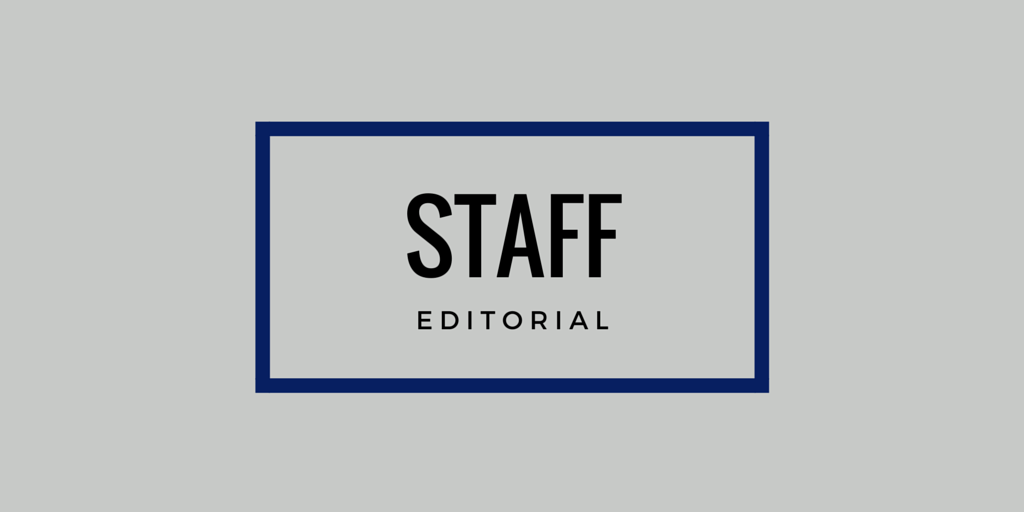Editorial: BOV should not be distant, uninvolved with student community
3 min read
Lauren Brumfield | The Blue & Gray Press
When it comes to student activism, the University of Mary Washington is brimming with passionate undergraduates and graduates. We have a population of more than five thousand students involved in approximately 120 clubs and organizations on campus. We have students from many different backgrounds representing a spectrum of identities, goals and interests. If UMW students identify a need to address or a cause to initiate, they are not afraid to take action.
Such actions, of course, can be met with certain limitations depending on the nature of a cause or need. If a student organization seeks to alter university policy, for example, the organization must go through the necessary tiers of approval before true change can be enacted. At the highest tier in this process stands the Board of Visitors.
To many UMW students, the BOV may seem like a council enshrouded in mystery and might. Students, after all, do not typically interact with the board. Unlike President Rick Hurley or other administrators, board members are not expected to attend the occasional Bingo night at the Underground, or invite students over for a Sodexo catered meal. And while the twelve BOV members have neat, concise biographies available on the UMW website, few students take the time to learn all of the BOV’s names and faces. Even if they did, a biography can only tell one so much.
It seems a little frightening, then, that such an unknown entity can wield so much power over the student body.
In July and August of 2012, the University of Virginia Board of Visitors removed President Teresa Sullivan from her position. The abrupt decision incited anger and was eventually reversed, as many perceived Sullivan to be a guardian of student interests. The board, on the other hand, seemed to value economic security above student interests. A healthy balance between the two elements is a necessary one, but also one that’s hard to strike.
Of course, any BOV is employed to provide an objective perspective on a university’s decisions. While a professor or other involved faculty member might be inclined to compromise the financial well being of the school for the sake of the student body, the BOV is able to finalize a decision with minimal bias. On the flip side of this, however, the Board is not nearly as affected by their own decisions as other members of the university staff because they have very little at stake. There is always a risk that ill-fitting choices could be made.
In recent weeks, DivestUMW has been active in pursuing their goals with an ongoing sit-in, campaigns, a forum, various collaborations with other groups on campus and direct discussion with the BOV. Despite these extensive efforts, their cause has gone largely unacknowledged by the Board.
The BOV should be one that aims to accurately represent the interests of the student body. It should be a council that is attentive to the needs of the student body, seeks the overall improvement of this fine institution and makes evaluations always keeping in mind the long term effects of such decisions. The board should be an entity that protects, preserves and expands the liberties of students. Though they should not simply cater to student demands without thought, the board should, above all, listen to student voices.



There’s a difference between them not listening and you not getting your way.
Please don’t confuse the two, it’s shortsighted and foolish.
Great article, and I agree that the BOV should vocally address the DivestUMW student concerns. However, I believe that the University’s best interest is being upheld by the BOV on this issue, whether or not the BOV chooses to speak out. “Renewable Energy” is in its infancy and is, therefore, an extremely expensive option for campus utliities. Any and all costs incurred by switching from traditional fuel-based utilities to the options of wind and/or solar energy would be passed directly to students (or in most cases, their parents) in the form of drastically-increased tuition, which would drive away prospective students and leave UMW at a very real risk of bankruptcy. I appreciate the students’ concern with the environment, but a dose of reality is much needed here.
I agree with the messages that are concerned about tuition raising. Divest proposes a lot of information about climate change; lets see stats about proposed housing/tuition change? I hope to afford my education so I can work to perfect environmentally friendly resources.
The article cites more than five thousand students attend UMW. The private Facebook group for Divest has under 200 members. I peg these as the students that are serious, not the students in the group of 807 members. Still, only a fraction of those 200 are actually “sitting in.” Out of over 5000 students on campus, very few seem to genuinely support the issue.
There have been times in history that have demonstrated that if you create a story big enough, and tell it enough times, it will be accepted as fact. The latest two campus controversies seem to perpetuate that, on a relatively smaller scale, the same is happening at UMW. Whether it involves branding an entire group of young men as pro-rapist, or promoting the notion that a full divestment from an integral part of the economy, with no reasonable phasing or interim plan of action associated, the propaganda seems to override the facts. Get caught up in the furor, and suddenly a “crisis” is created. Self-promotion and misplaced activism end up overriding personal rights and institutional stability. Somehow, it wouldn’t be surprising if some of the same people are involved in these latest crises. These latest actions seem less about the long-term good of UMW, but more about a few misguided folks enjoying chaos and disorder, all the while using a few loud voices as if they represent the entire population.
the students are wrong.